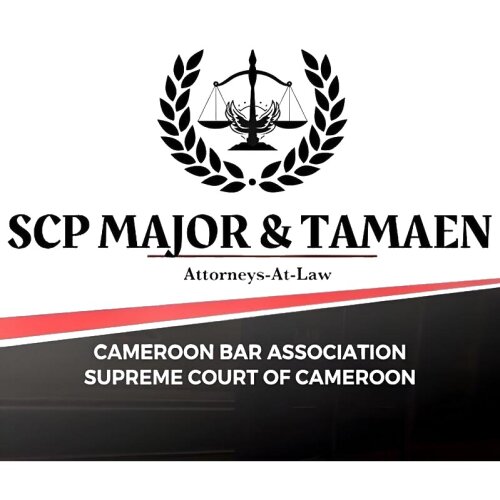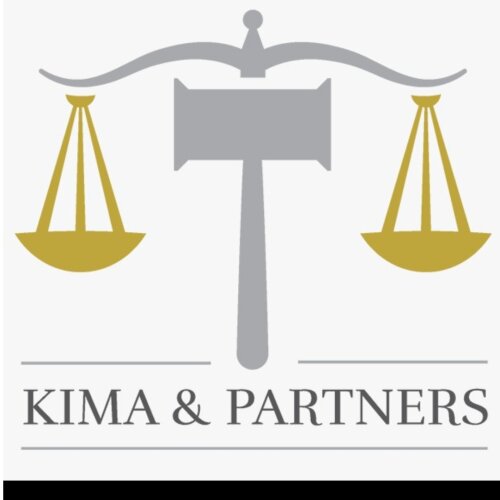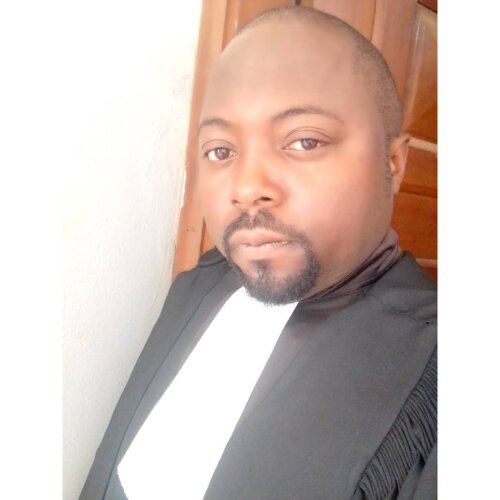Best Energy Regulatory Law Lawyers in Yaoundé
Share your needs with us, get contacted by law firms.
Free. Takes 2 min.
List of the best lawyers in Yaoundé, Cameroon
Legal guides written by CHI & Partners Law Firm:
- Ship Registration in Cameroon
About Energy Regulatory Law in Yaoundé, Cameroon
Energy Regulatory Law in Yaoundé, Cameroon covers the framework of rules, policies, and regulations that govern the production, distribution, and use of energy resources within the city and nationwide. This legal field particularly addresses the oversight of electricity, oil and gas, and renewable energies. The main goal of energy regulation is to ensure fair pricing, safety standards, access to reliable and sustainable energy, and compliance with national strategies and international obligations. In Cameroon, the energy sector plays a significant role in economic development, making compliance and legal advice vital for anyone involved in energy projects or disputes.
Why You May Need a Lawyer
There are various scenarios in which seeking legal help in energy regulatory law becomes important in Yaoundé. These include:
- Starting a business in the energy sector, such as solar energy, fuel distribution, or electricity production
- Navigating the complex licensing and permit requirements for energy production and distribution
- Resolving disputes involving energy supply contracts or tariffs
- Complying with state-imposed safety and environmental standards
- Facing investigations or sanctions by the regulatory authorities
- Dealing with land use and community rights related to energy exploration and infrastructure projects
- Pursuing or defending against claims about environmental damage or compensation
- Seeking advice on taxation and import-export rules for energy resources
An experienced lawyer can guide individuals and companies through regulatory applications, dispute resolution, regulatory compliance, and more.
Local Laws Overview
The energy sector in Yaoundé, Cameroon is governed by several key laws and decrees designed to regulate the industry and protect consumers, investors, and the environment. The most important legal instruments include:
- The Electricity Law (Law No 2011/022 of 14 December 2011), which regulates the production, transportation, distribution, and commercialization of electricity
- Decrees and orders from the Ministry of Water and Energy Resources, which set operational guidelines and standards for industry players
- Establishment of the Electricity Sector Regulatory Agency (ARSEL), which oversees licensing, tariff setting, and dispute mediation
- The Hydrocarbons Code governing exploration and production of oil and gas
- Environmental protection laws that intersect with energy projects, requiring environmental impact assessments and community consultations
- Customs and tax laws specifically tailored to the import and export of energy equipment and resources
The regulatory landscape in Yaoundé is dynamic, with ongoing reforms aimed at modernizing the sector and promoting investments, especially in renewable energy. Compliance with these laws is crucial to operate smoothly within the sector.
Frequently Asked Questions
What is the role of ARSEL in the energy sector?
ARSEL, or the Electricity Sector Regulatory Agency, is the main body responsible for regulating the electricity sector in Cameroon. It issues licenses, sets tariffs, ensures compliance with industry standards, and resolves disputes between stakeholders.
What types of licenses are required to operate in the energy sector?
Depending on the activity, you may need licenses for electricity production, distribution, supply, import or export of energy resources, or oil and gas exploration. Each license involves an application process with specific criteria and fees.
How are electricity tariffs set?
Tariffs are determined based on operational costs, investments, and regulatory standards. ARSEL reviews and approves all proposed tariffs to ensure they are fair to both consumers and providers.
What legal obligations do energy companies have regarding the environment?
Energy companies must comply with environmental protection regulations, which include conducting environmental impact assessments, adopting pollution control measures, and engaging in community consultations where necessary.
Can foreign investors participate in the energy sector?
Yes, foreign investors are welcome, provided they comply with local laws, obtain the relevant permits, fulfill partnership or localization requirements, and align with strategic national interests.
What are the penalties for violating energy regulations?
Penalties can range from warnings and fines to suspension or withdrawal of licenses. In severe cases, criminal prosecution may apply, particularly for environmental or safety breaches.
How can disputes in the energy sector be resolved?
Disputes can be handled by ARSEL or referred to the administrative courts. Alternative dispute resolution methods, like mediation or arbitration, are sometimes available depending on contractual arrangements.
Are there special rules for renewable energy projects?
Yes, Cameroon is encouraging renewable energy, and there are specific incentives such as tax benefits, expedited permits, and project support for investors in solar, wind, or hydro power.
What must be included in an energy supply contract?
Such contracts should clearly define the rights and obligations of each party, technical specifications, pricing, dispute procedures, compliance clauses, and terms for termination or renewal.
How can consumers file complaints about energy service providers?
Consumers can submit complaints directly to ARSEL, the Ministry of Water and Energy Resources, or through consumer protection organizations. Complaints should include all relevant details and evidence.
Additional Resources
For more assistance and information regarding Energy Regulatory Law in Yaoundé, you can contact or consult the following key resources:
- Electricity Sector Regulatory Agency (ARSEL) - the main regulator and information point for electricity matters
- Ministry of Water and Energy Resources - policymaking and oversight authority in the energy sector
- National Hydrocarbons Corporation (SNH) - oversees oil and gas matters
- Environment and Consumer Rights NGOs, which can offer advocacy and support
- Bar Association of Cameroon - for referrals to experienced energy law practitioners
Next Steps
If you require legal advice or representation in Energy Regulatory Law in Yaoundé, Cameroon, here are recommended steps:
- Define your issue or objective clearly, including all relevant documents and information
- Consult ARSEL, the Ministry, or another relevant regulator for initial guidance
- Seek a lawyer specialized in energy law, preferably with local experience in Yaoundé
- Prepare your case, including any applications, contracts, or evidence you might need
- Follow your lawyer's advice about the best strategies, whether negotiation, formal complaint, or court proceedings
Being informed and proactive will help you navigate the complex legal environment of Cameroon's energy sector and support your interests effectively.
Lawzana helps you find the best lawyers and law firms in Yaoundé through a curated and pre-screened list of qualified legal professionals. Our platform offers rankings and detailed profiles of attorneys and law firms, allowing you to compare based on practice areas, including Energy Regulatory Law, experience, and client feedback.
Each profile includes a description of the firm's areas of practice, client reviews, team members and partners, year of establishment, spoken languages, office locations, contact information, social media presence, and any published articles or resources. Most firms on our platform speak English and are experienced in both local and international legal matters.
Get a quote from top-rated law firms in Yaoundé, Cameroon — quickly, securely, and without unnecessary hassle.
Disclaimer:
The information provided on this page is for general informational purposes only and does not constitute legal advice. While we strive to ensure the accuracy and relevance of the content, legal information may change over time, and interpretations of the law can vary. You should always consult with a qualified legal professional for advice specific to your situation.
We disclaim all liability for actions taken or not taken based on the content of this page. If you believe any information is incorrect or outdated, please contact us, and we will review and update it where appropriate.













